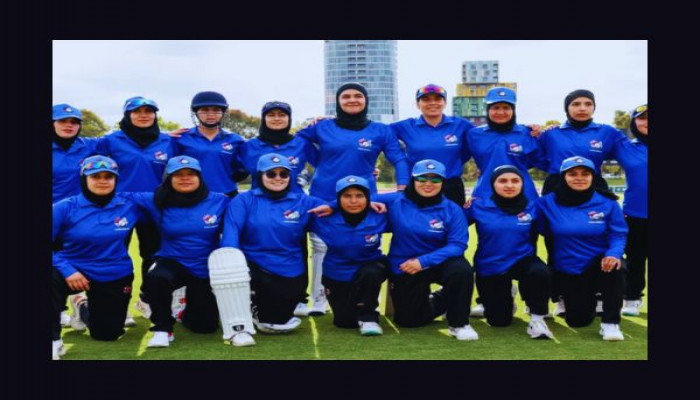ICC announces support fund for displaced Afghan women cricketers, but uncertainty lingers
- In Reports
- 06:42 PM, Apr 14, 2025
- Myind Staff
In a significant move following increasing international pressure, the International Cricket Council (ICC) has announced the launch of a dedicated support fund and high-performance programme for Afghan women cricketers who were displaced after the Taliban seized control of Afghanistan in 2021. The announcement was made during the ICC’s quarterly meetings held in Zimbabwe and has been welcomed as a long-awaited step toward assisting these athletes, most of whom are now refugees living in Australia.
A Long-Awaited Step Forward
The ICC will partner with the sport’s three most influential and financially powerful boards—India, England, and Australia—to set up this new fund. The initiative aims to provide direct financial aid to the affected women cricketers, allowing them to continue pursuing the sport professionally despite being forced to flee their home country.
“This will be complemented by a robust high-performance programme offering advanced coaching, world-class facilities, and tailored mentorship to help them reach their full potential,” the ICC said in an official media release.
The development marks a strong opening move from Jay Shah, who is presiding over his first set of ICC meetings as chair. Formerly the head of the Indian cricket board, Shah’s elevation to global leadership had been met with skepticism. However, this initiative is being seen as a positive signal of his intent to influence meaningful change in world cricket.
“In collaboration with our valued partners, we are proud to launch this task force and support fund, complemented by a comprehensive high-performance programme, to ensure displaced Afghan women cricketers can continue their journey in the sport,” Shah stated. “This initiative reflects our steadfast dedication to cricket’s global growth and its power to inspire unity, resilience, and hope.”
Lingering Doubts and Unanswered Questions
Despite the optimism surrounding the announcement, several key issues remain unresolved. The ICC has not disclosed the exact amount of funding allocated for this programme, nor has it clarified whether the funds will be drawn from Afghanistan’s existing revenue share, which currently stands at approximately $17 million annually.
There had been earlier proposals, particularly from Cricket Australia, suggesting a portion of Afghanistan’s ICC revenue be redirected toward women’s cricket. However, these efforts were stalled due to the high operational costs associated with supporting the Afghan men’s team, which does not play home matches and is largely based in the UAE and India for security reasons.
Moreover, it is still uncertain whether the displaced Afghan women cricketers will be able to form an official national team and compete at the international level. While some progress has been made, such as the formation of an Afghanistan Women’s XI, which played a friendly match against a Cricket Without Borders team in Melbourne this January, there has been no formal recognition or pathway established for them to participate in ICC-sanctioned competitions.
No Sanctions on the Afghanistan Cricket Board
While the support initiative is a positive development, the ICC has opted not to impose sanctions on the Afghanistan Cricket Board (ACB), despite growing calls from countries like Australia and England. Critics argue that the ACB’s close ties with the Taliban-led government hinder the growth of women’s cricket and violate the spirit of inclusion the sport promotes. Nevertheless, the ICC has refrained from taking punitive measures, citing the inspirational rise of the Afghan men’s team as a compelling reason.
The Afghan men’s team has often been portrayed by the ICC as a symbol of hope and resilience, representing a country that has endured decades of conflict. Their success story continues to be a centrepiece of the ICC’s marketing narrative about cricket’s global expansion, especially into non-traditional strongholds.
The announcement of a support fund and development programme for displaced Afghan women cricketers marks a crucial, albeit cautious, step by the ICC toward addressing one of cricket’s most complex humanitarian challenges. While the initiative brings much-needed resources and visibility to players who have long been sidelined, it also highlights the ongoing difficulties in balancing politics, governance, and the growth of the game.
As questions remain about long-term funding, international participation, and the role of the Afghanistan Cricket Board, the ICC’s new strategy appears to be a compromise between action and inaction. Nevertheless, for the Afghan women who risked everything for cricket, this initiative offers a renewed sense of purpose and a possible future in the game they love.







Comments